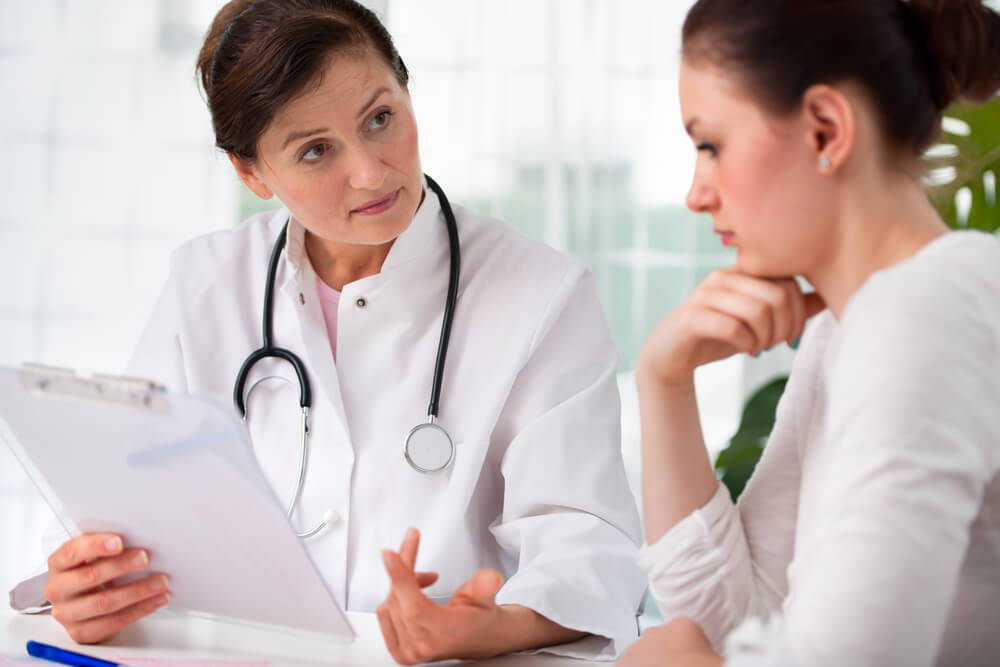Endometriosis is a condition where the tissue lining inside the uterus (endometrium) grows outside the uterus and on other organs in the pelvic area. This can cause a variety of symptoms, including pain, heavy periods, and, in extreme cases, infertility.
In this article, we will explore the link between endometriosis and infertility and discuss the potential causes and treatments for this condition. We will also look at the latest research on the topic and provide information on support resources available for those struggling with fertility issues caused by endometriosis. Don’t hesitate to reach out to Dr. Andrew Krinsky in Tamarac, Florida, if you have any concerns or questions regarding this condition.
The Most Common Endometriosis Symptoms
The symptoms of endometriosis can vary widely from person to person, and some women may not experience any symptoms at all. Common symptoms of endometriosis include pelvic pain, particularly during periods, heavy or irregular periods, pain during intercourse, and infertility. Some women may also experience fatigue, diarrhea, constipation, or bloating during their periods. In rare cases, endometriosis can also cause painful urination or bowel movements.
It’s important to note that other conditions may also cause these symptoms. A proper diagnosis from a medical professional is necessary to determine the cause of the symptoms and the best course of treatment.
How Is Endometriosis Diagnosed?

Endometriosis can be challenging to diagnose because symptoms can vary considerably and may be present due to other health issues. However, several methods can be used to diagnose endometriosis. The most common diagnostic procedure is a pelvic exam, during which a healthcare provider will feel for any abnormal growths or tissue on the ovaries, fallopian tubes, and other pelvic organs. Imaging tests such as an ultrasound or MRI can also be used to confirm a diagnosis.
Another diagnostic method is laparoscopy, a surgical procedure in which a tiny camera is inserted through a small incision in the abdomen to view the pelvic organs. This procedure can confirm the presence of endometriosis and allow the surgeon to remove or biopsy any endometrial tissue.
In addition to these diagnostic methods, blood tests such as CA-125 can be used to measure the level of a protein that is often elevated in women with endometriosis.
Potential Causes of Endometriosis
The exact cause of endometriosis is unknown, but several theories have been proposed.
One theory is that during menstruation, some of the endometrial tissue flows backward through the fallopian tubes and into the pelvic cavity, where it attaches to other organs and begins to grow. Another theory is that endometrial cells are present in the pelvic cavity from birth and then activate at the time of menstruation.
A genetic link has also been suggested, as women with a family history of endometriosis are more likely to develop the condition. Immune system dysfunction or environmental factors has also been proposed as a possible cause of endometriosis. Research has also shown that certain chemicals, such as dioxins, which are found in pesticides and industrial products, may increase a woman’s risk of developing endometriosis.
It’s important to note that the cause of endometriosis is still not fully understood, and multiple factors may be involved in its occurrence.
Studies are still ongoing to understand the underlying reasons for the development of this condition.
The Matter of Endometriosis and Fertility
Endometriosis can affect fertility in several ways. The endometrial tissue that grows outside the uterus can cause inflammation and scarring on the ovaries and fallopian tubes, making it difficult for eggs to travel from the ovaries to the uterus. Additionally, the growths can disrupt the ovaries’ normal function, negatively affecting ovulation.
Endometriosis can also cause adhesions, which are bands of scar tissue that can bind organs together and make it problematic for the egg and sperm to connect. Furthermore, the chronic pelvic pain associated with endometriosis can make intercourse difficult, which is also a negative link between endometriosis and fertility.
Still, not all women with endometriosis will experience fertility issues, but several treatment options are available for those who do. Surgery, medication, and assisted reproductive technologies such as in vitro fertilization (IVF) can help improve fertility in women with endometriosis. It is essential to consult with a specialist regarding the best course of action, as the severity of the endometriosis and the individual’s desire to conceive are important considerations.
Getting Pregnant With Endometriosis
Getting pregnant with endometriosis can be challenging, but it is not impossible. The first step in increasing the chances of pregnancy is to have an accurate diagnosis and assessment of the severity of the endometriosis. This will help determine the best course of treatment. In some cases, surgery to remove endometrial growths or adhesions may improve fertility.
Medications such as gonadotropin-releasing hormone agonists (GnRH) and aromatase inhibitors can also be used to suppress the growth of endometrial tissue and improve fertility. As mentioned, assisted reproductive technologies such as in vitro fertilization (IVF) can also help women with endometriosis. IVF allows fertilization to occur outside the body, bypassing some of the issues that endometriosis can cause in the fallopian tubes and ovaries.
The best way to increase the chance of pregnancy is to work closely with a specialist and design a personalized treatment plan for endometriosis and pregnancy. Additionally, lifestyle changes such as a healthy diet, exercise, and stress management can also help improve the chances of pregnancy.
Can Endometriosis Cause Infertility?

Endometriosis can cause infertility in some women, but it is not a definitive cause in all cases. The exact link between endometriosis and infertility is not fully understood, but it can mess up the function of the ovaries and fallopian tubes.
However, when we ask can endometriosis cause infertility, it is important to note that not all women with this condition will experience fertility issues. Some women with mild endometriosis may be able to conceive naturally, while others with more severe cases may require assisted reproductive technologies such as in vitro fertilization (IVF) to become pregnant, as stated before.
Remember that other factors such as age, overall health, and other medical conditions can also play a role in a woman’s fertility. Endometriosis may cause infertility, but it is not the only factor; thus, it is vital to have a comprehensive evaluation and consider the individual’s desire to conceive before making a thorough endometriosis and pregnancy plan.
Contact Gynecology & Women’s Wellness
Do not hesitate to call or make an appointment through our website if you are dealing with any of the symptoms associated with endometriosis or having difficulty conceiving. Non-pregnant women of all ages in the Sunshine State are welcome to see Yale-educated Dr. Krinsky. If you have any questions or concerns about your reproductive health, remember that we are here to help.


